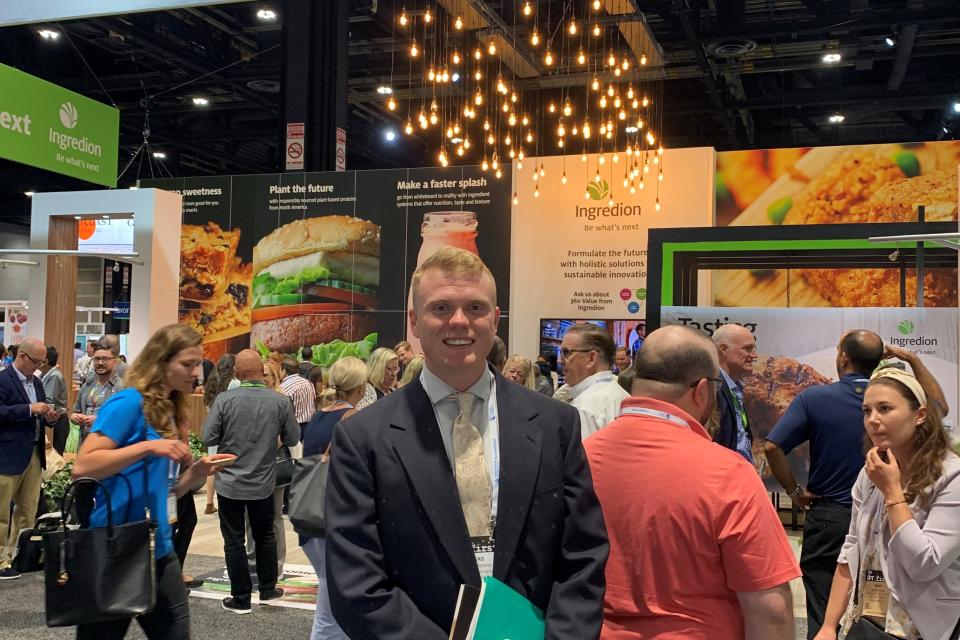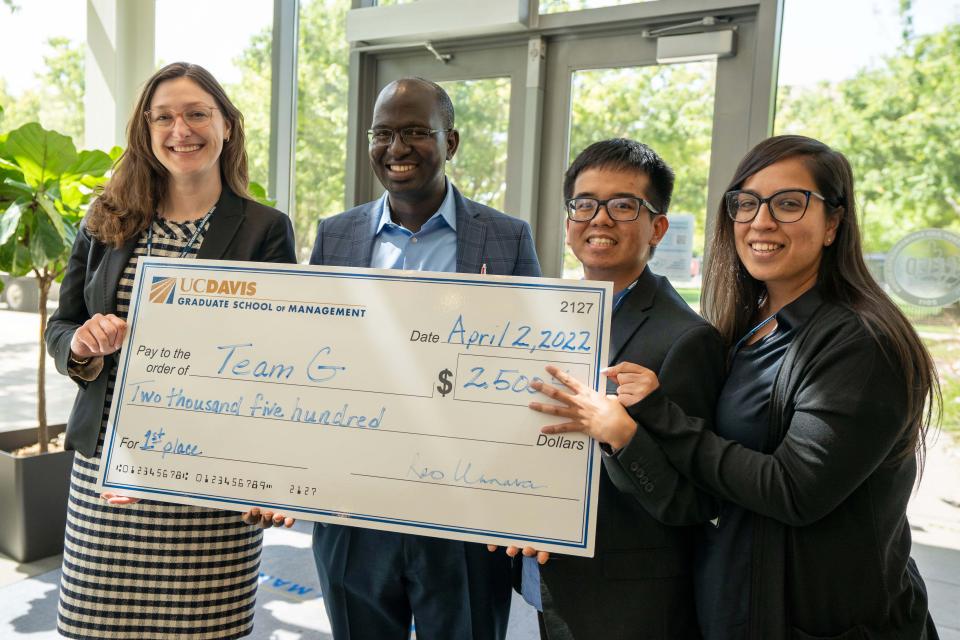Our MBA Team Dug Deep into the Keto Diet Market
Gaining experience in niche food product pipeline development
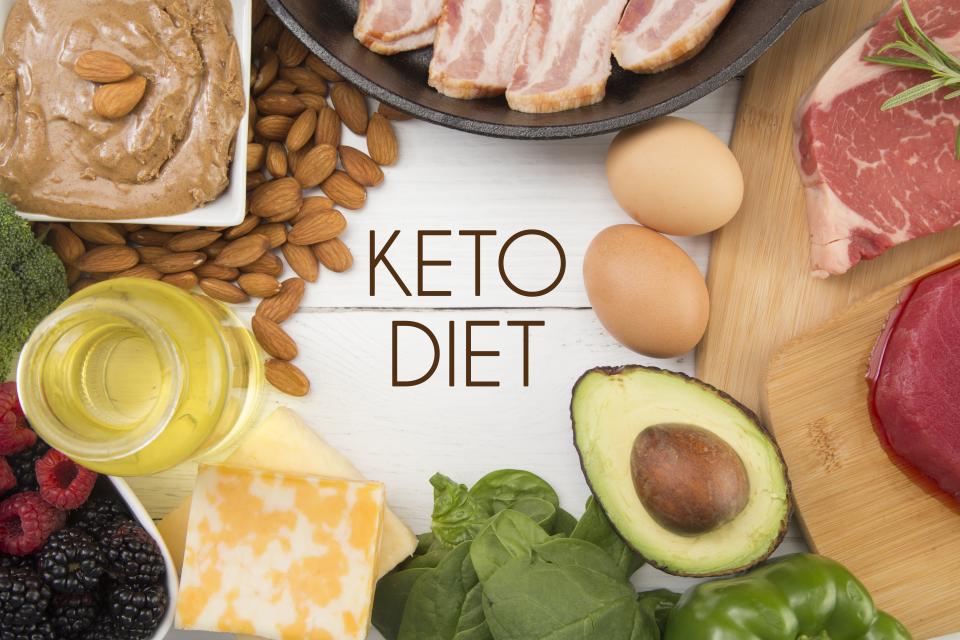
One of the main reasons I chose the UC Davis MBA program is the range of opportunities to learn more about the food and agriculture industry at the world’s top-ranked research university in the field.
I am happy to say that I have been able to fully appreciate these benefits, including taking three courses led by Julie Morris, academic director of the Graduate School of Management’s (GSM) distinctive Food & Agriculture Industry Immersion program. Her courses include live case studies by senior executives, exclusive tours of agribusinesses, and developing solutions and presenting to our classmates.
Building on my background in chemical engineering, these classes have provided me with a much deeper understanding of the growth potential and complex challenges in the sector—as well as opened doors to academic and industry opportunities.
For example, I have been fortunate to be part of a new partnership between the GSM, UC Davis’ Innovation Institute for Food & Health (IIFH), and Barnstorm Foundry, a venture foundry joining entrepreneurs and scientific experts to launch new businesses that deliver products at the nexus of food and health.
I've worked with a team of MBA students to conduct research for Barnstorm Foundry and IIFH. As part of this collaboration, we have published two white papers on plant-based milks and, more recently, the ketogenic diet. While writing these papers, we’ve had the opportunity to be advised by Professor Prasad Naik, an expert in marketing research and strategy.
Metabolizing the Ketogenic Diet Market
After completing the market research paper on plant-based milk, our “Barnstorm Research Unit” was asked to scope the market opportunity for low-carbohydrate diets. These diets are in vogue right now due to research on the potential benefits of ketosis, which is a metabolic state in which the body can shift its energy source from glucose to ketones.
This assignment was initially daunting due to its potential scale—there are myriad diets that use some variation of limiting carbohydrates. After doing some initial secondary research from the available market research publications, we agreed with Barnstorm Foundry's leaders and Professor Naik to focus primarily on the ketogenic diet, currently the most popular of this genre of diets.
This experience of surveying a market and targeting a submarket provided us with the opportunity to practice scope definition, a vital skill for any business services engagement.
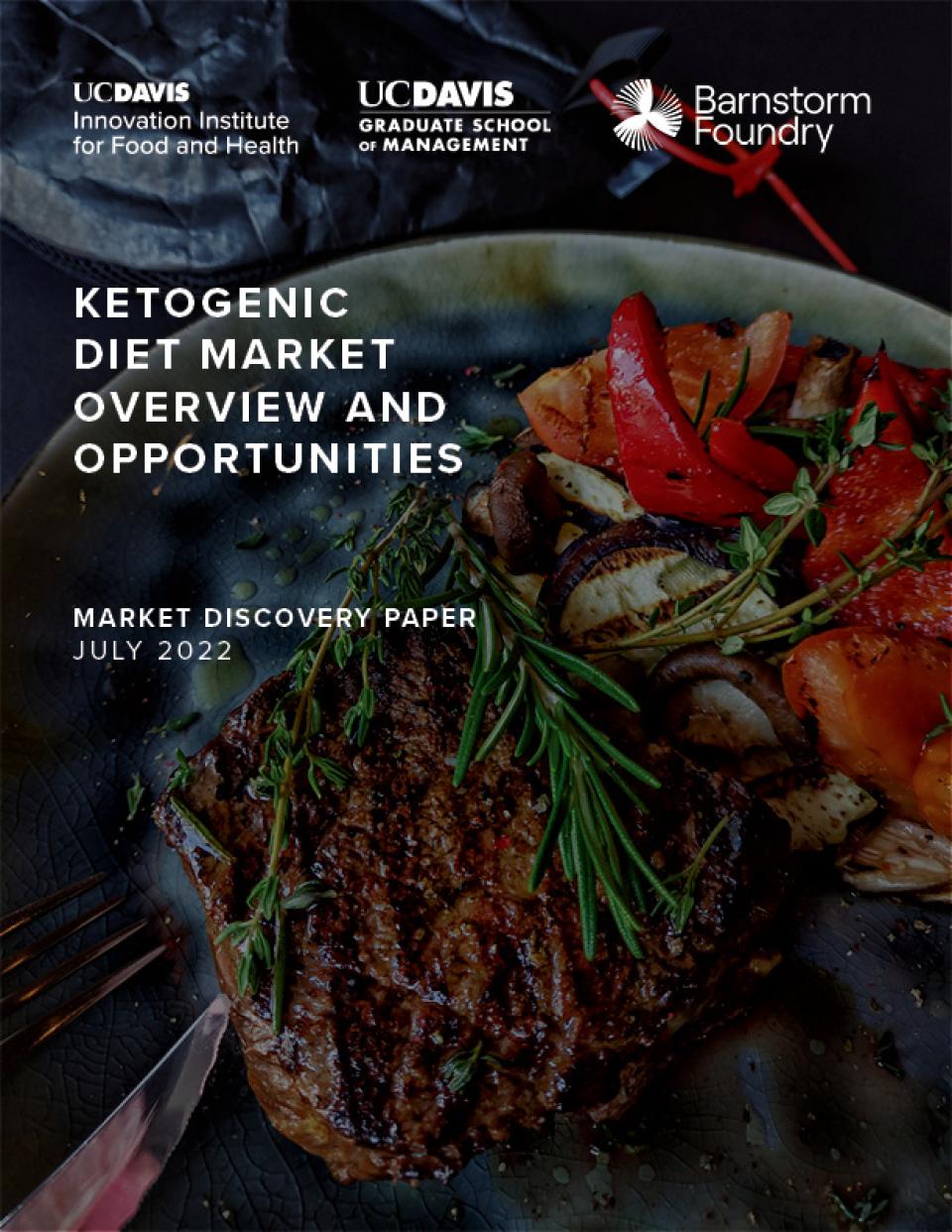
Broadening Keto Diet Appeal: Cognitive Health and Anti-Aging
Once we had defined the scope, the paper still presented a different and equally intriguing challenge compared to the previous plant-based milk paper. In that paper, we were looking at the plant-based milk field, in which there are clear product types dominating the space, currently almond and oat milk.
By contrast, no such products hold a clear leadership position in the ketogenic market. There are a wide array of offerings in many different consumption modalities, from bars to broths to supplements.
With our knowledge from courses such as Marketing Management taught by tech industry veteran Doug Findlay, we realized that one reason for the dispersed array of products with minimal brand loyalty is that existing brands have insufficiently responded to customer pain points. So that led to the question: what would it take to commercialize a product that could break past these customer adoption obstacles and achieve broader success?
To answer this, we took a step back from the products and took more of an ends-oriented approach, looking at the benefits that have been associated with the ketogenic diet. Based on those benefits, we were able to identify product attributes that could address unmet consumer needs. In particular, we identified anti-aging and cognitive health as two areas of keen interest to countries with higher-than-average aging populations.
Our paper, "Ketogenic Diet Market Overview and Opportunities," was published on January 24, 2023.
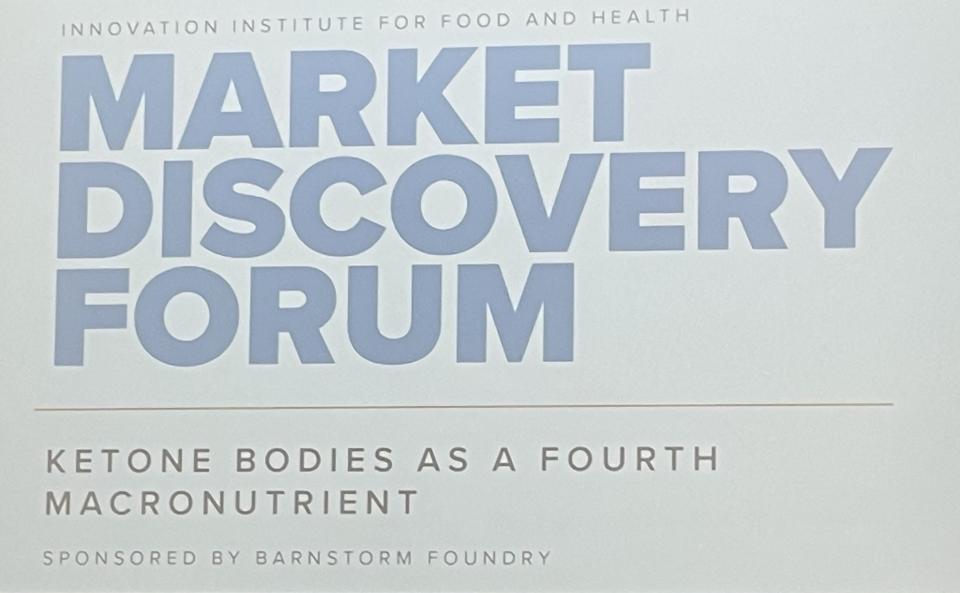
Deepening My Roots in the Food & Ag Network at UC Davis
Following the submission of the paper draft, I was invited to attend the UC Davis Innovation Institute for Food & Health’s Market Discovery Forum focused on “Ketone Bodies as a Fourth Macronutrient.”
The event brought together thought leaders from the food industry and adjacent fields, including neurobiology and physiology. Several new potential product offerings were discussed, including the development of products utilizing ketone esters. These supplements could potentially deliver similar benefits to the keto diet, without the same stringent level of carbohydrate restrictions that adherence to the ketogenic diet requires.
In addition to hearing about new products, it was rewarding to hear lectures by UC Davis faculty who are leading groundbreaking research in this area.
Professor Keith Baar of the UC Davis School of Medicine’s Department of Physiology and Membrane Biology has performed several studies on how the keto diet can help with sports performance for athletes and with longevity and musculoskeletal health for the elderly.
Our own GSM Professor Andrew Hargadon illustrated how commercializing successful new ketogenic products will depend on combining existing innovations with new technology, consistent with the entrepreneurship framework he has pioneered and teaches. Perhaps the new breakthroughs in ketone esters could be combined with progress so far in ketogenic product development. The resulting new products could bring the ketogenic diet’s benefits to a wider audience of those who cannot adhere to strict carbohydrate restrictions.
Finally, after completing the market research papers on plant-based milk and the ketogenic diet, Barnstorm Foundry asked me to work on commercializing an innovative dairy milk product.
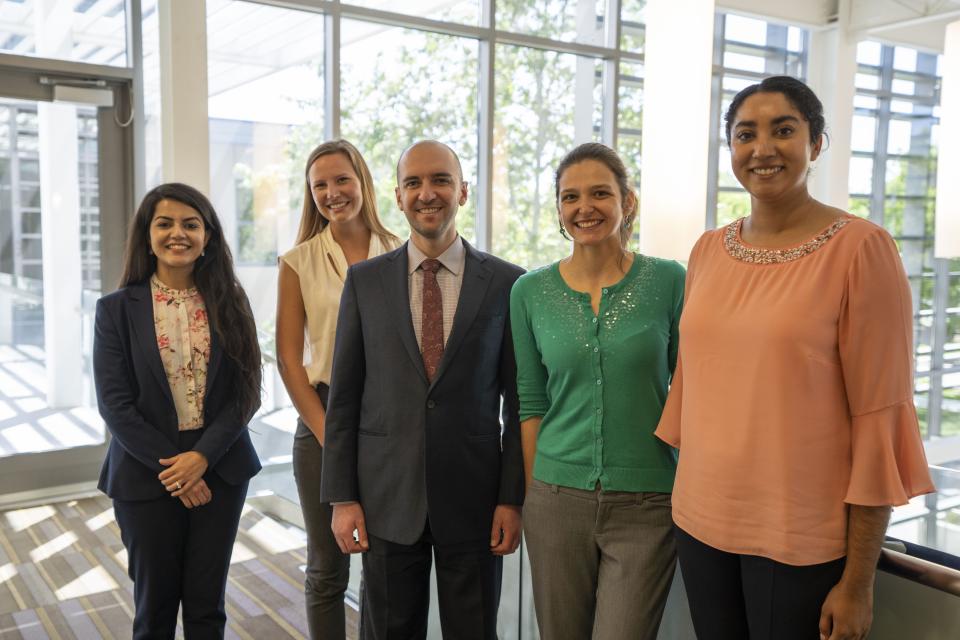
Pursuing an MBA at the UC Davis Graduate School of Management has paved a career path to become a proponent of new food technologies. I’m thankful to the faculty and Dean H. Rao Unnava for their vision of building an immersion experience with so many opportunities. I’ve participated in a wide variety of food and agriculture offerings and activities at the GSM, including a first-of-its-kind Food & Ag Case Competition with West Coast business students and serving as co-president of the GSM’s Food & Wine Leadership Club, just to name a few.
In addition, the GSM coursework has provided me with an academic framework to apply to any novel business challenge, which will serve me well in my future endeavors in the food and agriculture industry.
